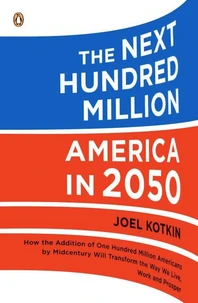If humankind can be said to have a single greatest creation, it would be those places that represent the most eloquent expression of our species's ingenuity, beliefs, and ideals: the city. In this authoritative and engagingly written account, the acclaimed urbanist and bestselling author examines the evolution of urban life over the millennia and, in doing so, attempts to answer the age-old question: What makes a city great?Despite their infinite variety, all cities essentially serve three purposes: spiritual, political, and economic.
Kotkin follows the progression of the city from the early religious centers of Mesopotamia, the Indus Valley, and China to the imperial centers of the Classical era, through the rise of the Islamic city and the European commercial capitals, ending with today's post-industrial suburban metropolis. Despite widespread optimistic claims that cities are "back in style, " Kotkin warns that whatever their form, cities can thrive only if they remain sacred, safe, and busy-and this is true for both the increasingly urbanized developing world and the often self-possessed "global cities" of the West and East Asia.
Looking at cities in the twenty-first century, Kotkin discusses the effects of developments such as shifting demographics and emerging technologies. He also considers the effects of terrorism-how the religious and cultural struggles of the present pose the greatest challenge to the urban future. Truly global in scope, The City is a timely narrative that will place Kotkin in the company of Lewis Mumford, Jane Jacobs, and other preeminent urban scholars.
If humankind can be said to have a single greatest creation, it would be those places that represent the most eloquent expression of our species's ingenuity, beliefs, and ideals: the city. In this authoritative and engagingly written account, the acclaimed urbanist and bestselling author examines the evolution of urban life over the millennia and, in doing so, attempts to answer the age-old question: What makes a city great?Despite their infinite variety, all cities essentially serve three purposes: spiritual, political, and economic.
Kotkin follows the progression of the city from the early religious centers of Mesopotamia, the Indus Valley, and China to the imperial centers of the Classical era, through the rise of the Islamic city and the European commercial capitals, ending with today's post-industrial suburban metropolis. Despite widespread optimistic claims that cities are "back in style, " Kotkin warns that whatever their form, cities can thrive only if they remain sacred, safe, and busy-and this is true for both the increasingly urbanized developing world and the often self-possessed "global cities" of the West and East Asia.
Looking at cities in the twenty-first century, Kotkin discusses the effects of developments such as shifting demographics and emerging technologies. He also considers the effects of terrorism-how the religious and cultural struggles of the present pose the greatest challenge to the urban future. Truly global in scope, The City is a timely narrative that will place Kotkin in the company of Lewis Mumford, Jane Jacobs, and other preeminent urban scholars.

 , qui est-ce ?
, qui est-ce ?